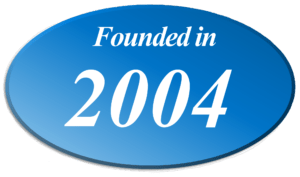Part two of a two-part series
Burnout can ruin an individual and the organization they work for. Don’t let that happen to you. Learn burnout prevention strategies from Cait Donovan, host of the podcast FRIED.
 Saad&Shaw – What if burnout is present – or even rampant – within an organization?
Saad&Shaw – What if burnout is present – or even rampant – within an organization?
Cait – You’ll need outside support for the people experiencing it because once they are burnt out, recovery takes a lot of support and anywhere from 6-18 months to heal. Outside support can be through an EAP (employee assistance program), a coach who understands burnout, mentorship, a sabbatical program, and more. This is what’s most important: if someone is already burnt out, making changes has to happen so other people don’t burn out. And, those same changes will only help the burnt-out person once they are well on their way to recovery. Burnout is a health issue and should be addressed as such. It’s not a mindset problem or a ‘take a long weekend’ problem.
Saad&Shaw – What can we do as individuals to identify when burnout is encroaching?
Cait – If burnout is encroaching, then we are not talking about prevention, it’s time to talk recovery. These are two different things. Burnout prevention is stress management and can include tools such as exercise, diet, sleep patterns, mindfulness practices, and more. Burnout recovery often requires a deeper dive into the reasons for a person’s burnout so that they can start to untangle the web they’ve found themselves in. Burnout does not have a ‘root cause,’ it has a web of causative factors that layer up over time. Some factors are influenceable, and some are not. As someone goes through this discovery, they have to make peace with the non-controllables and exert influence on the controllables. I have yet to meet a person who has experienced burnout who has a full picture of why it happened without outside help. We are often blind to the issues that got us here, through no fault of our own and need outside support to move through it successfully. One of the things I often ask people to start with is counter-intuitive, but it works! Start a resentment journal. Resentment is an often-avoided emotion that is so rich in great information. Once you start noticing your resentments, you’ll notice some patterns. Resentment often points to places where your boundaries are being crossed and places where you are self-neglecting. This is a major kick off to long term burnout recovery.
 Saad&Shaw – Why is this important to you?
Saad&Shaw – Why is this important to you?
Cait – I was a solopreneur who burnt out terribly doing a job I loved. When I tried to recover, most of the information I found was designed for different experiences: corporate life, being a doctor, being a nurse. And most was about burnout prevention, not recovery. It took more than I ever imagined to recover, and while recovery is deep and sometimes complicated, my goal is to help people understand that it’s doable as long as they are committed to themselves.
Blog Bonus:
Saad&Shaw – Tell us about you, your public speaking, book, and podcast. How did you find yourself on this path of sharing information and tools?
Cait – Before speaking and writing, I was a full-time acupuncturist and herbalist. This is the work that I burnt out in. I was complaining one day to my husband that I see 60 patients a week and tell most of them the same messages and he said, “Well, why don’t you start writing those down?”. I never did – but it was a good idea that sparked a further one – what if I could reach more people in less time and make more impact without so much repetition? Books, podcasts, and speaking engagements are great ways to do that! I have found myself loving this newfound career more than I ever imagined.
Saad&Shaw – And what would those resources include?
Cait – The podcast is the number one resource I can share. With over 250 episodes, FRIED has something to offer pretty much everyone! And The Resentment Journal is an incredibly useful mini course available for purchase.
Saad&Shaw – Do you have any closing words of wisdom for our readers?
Cait – If you aren’t burnt out yet but you’re feeling the stress – dive into the foundational self-care that you already know you need. Eat one healthier meal a day. Get up from your chair once an hour. Try to improve your sleep. Practice mindfulness meditation with an app like Headspace. I know that if you’re reading this, there is something that you KNOW you should be doing that you aren’t doing yet. Start there. If you are already burnt out, start with resentment. It’s likely an emotion that is closer to the surface than you realize at first glance. Tapping into it will tell you so much about what you need and will really and truly kick off your burnout recovery in a powerful way. More powerful than any other tool I’ve seen in my eight years of doing this work!
If you want to know more, visit Cait’s website. You can also purchase her book, The Bouncebackability Factor: End Burnout, Gain Resilience, and Change the World.
Read part one of the series here
Copyright 2024 – Mel and Pearl Shaw of Saad&Shaw – Comprehensive Fund Development Services. Let us help you plan for 2024! Video and phone conferencing services are always available. Call us at (901) 522-8727. www.saadandshaw.com










